The Buddhist Digital Resource Center (BDRC) and Internet Archive (IA) announced today that they are making a large corpus of Buddhist literature available via the Internet Archive. This collection represents the most complete record of the words of the Buddha available in any language, plus many millions of pages of related commentaries, teachings and works such as medicine, history, and philosophy.
BDRC’s founder, E. Gene Smith, spent decades collecting and preserving Tibetan texts in India before starting the organization in 1999. Since then, as a neutral organization they have been able to work on both sides of the Himalayas in search of rare texts.
Several months ago in a remote monastery in Northeast Tibet, a BDRC employee photographed an old work and sent it in to their library. It was a text that the tradition has always known about, but which was long considered to have been lost. Its very existence was unknown to anyone outside of the caretakers of the monastery that had safeguarded it for centuries.
The Kadampa school, active in the 11th and 12 centuries, was known to scholars – they knew who had started the tradition and where it fit in the history of Buddhism – but most of the writings from that period had not survived the centuries. And yet suddenly here was a lost classic of this tradition, the only surviving manuscript of the work: The exposition on the graduated path by Kadam Master Sharawa Yontan Drak (1070-1141). Dozens of pithy sayings are attributed to Sharawa in later works but this writing of his is never directly cited in the classics of the genre that date back to the fifteenth century and before.
BDRC’s digitizers never know what they will find when they arrive at a new location, but their work has uncovered missing links, beautiful woodblock versions of known texts, writings of previously unknown authors, and texts by famous people that they thought had been lost to time. While the manuscript above is an amazing find, it is by no means the only one their work has unearthed.
This work highlights the importance of preserving cultures before they disappear or are too dispersed to gather together. In its efforts to make all of Buddhist literature available, BDRC is also digitizing fragile palm leaf manuscripts in Thailand, Sanskrit texts in Nepal, and the entire Tibetan collection of the National Library of Mongolia. Brewster Kahle, founder of Internet Archive, said, “In 2011 we announced that we had digitized every historic work in Balinese, and this year we are making Tibetan literature available. We hope that this is a trend that will see the literatures of many more cultures become openly available.”
This is not an academic pursuit. Many Tibetans have left their homeland, spreading to India and around the world. Younger generations who have been displaced and raised in other societies may not have the opportunity to grow up with these traditional teachings. The work of the BDRC is to make those teachings available to everyone.
Jeff Wallman, Executive Director Emeritus of BDRC and Jann Ronis, Executive Director of BDRC, addressed their reasons for making this information available on the Internet Archive: “The founding mission of BDRC is to make the treasures of Buddhist literature available to all on the Internet. We recognize that you cannot preserve culture; you can only create the right conditions for culture to preserve itself. We hope that by making these texts available via the Internet Archive, we can spur a new generation of usage. Openness ensures preservation.”
The BDRC’s extensive collection is used by laypeople and monks alike. Karmapa Ogyen Trinley Dorje is a frequent user of their collection. He and other traveling teachers call on the BDRC’s library for references and works when they are away from their libraries, or whenever they need a rare text that they could not otherwise access.
 Chokyi Nyima Rinpoche, the Abbot of Ka-Nying Shedrub Ling Monastery in Nepal, and a well regarded teacher of Tibetan Buddhism around the world, is gratified that the teachings of Buddha have been made available. “We can share the entire body of literature with every Tibetan who can use it. These texts are sacred, and should be free.”
Chokyi Nyima Rinpoche, the Abbot of Ka-Nying Shedrub Ling Monastery in Nepal, and a well regarded teacher of Tibetan Buddhism around the world, is gratified that the teachings of Buddha have been made available. “We can share the entire body of literature with every Tibetan who can use it. These texts are sacred, and should be free.”
BDRC’s home office is in Cambridge, Massachusetts, with additional offices and digitization centers in Hangzhou, China; Bangkok, Thailand; Kathmandu, Nepal; and at the National Library of Mongolia in Ulaanbaatar where it is establishing a project in collaboration with the Asian Classics Input Project (ACIP).
Internet Archive and BDRC are both delighted to join forces on sharing the Buddhist literary tradition for the benefit of humanity.
BDRC is a 501(c)(3) nonprofit dedicated to seeking out, preserving, organizing, and disseminating Buddhist literature. Joining digital technology with scholarship, BDRC ensures that the treasures of the Buddhist literary tradition are not lost, but are made available for future generations. BDRC would like every monastery, every Buddhist master, every scholar, every translator, and every interested reader to have access to the complete range of Buddhist literature, regardless of social, political, or economic circumstances. BDRC is headquartered in Harvard Square in Cambridge, Massachusetts.
The Internet Archive is a 501(c)(3) nonprofit digital library based in San Francisco that specializes in offering broad public access to digitized and born-digital books, music, movies and Web pages.
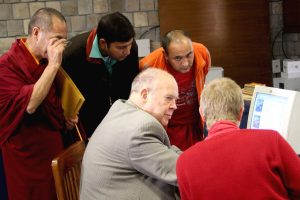
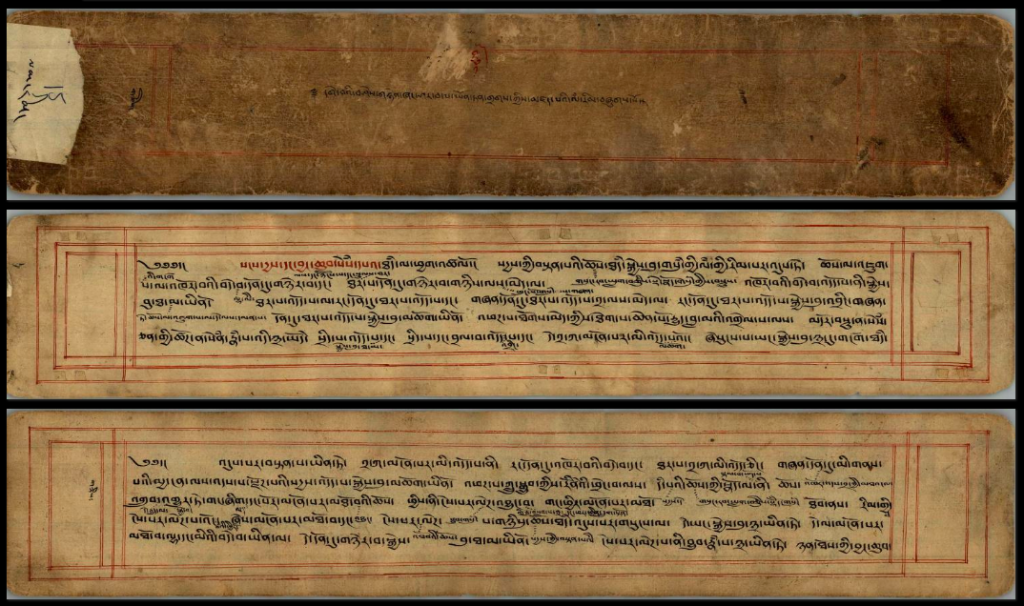
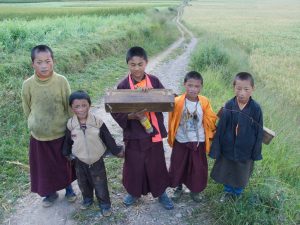
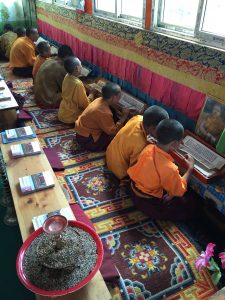
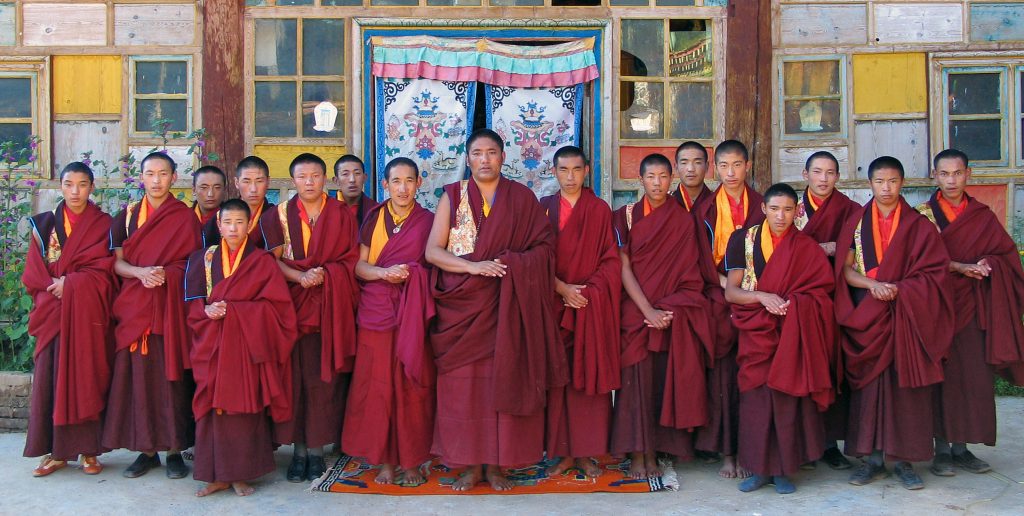
great to hear this
tibet has a long history of rituals and practices which one should know and understand on buddhism
they had also links with indian rishis particularly in the himalayan region
Pingback: La più completa raccolta di libri di Buddhismo disponibile on-line »
Pingback: The Internet’s keepers? “Some call us hoarders—I like to say we’re archivists” - Binary Reveux
Pingback: The Internet's keepers? “Some call us hoarders—I like to say we're archivists” - Techheadlines
Pingback: The Internet’s keepers? “Some call us hoarders—I like to say we’re archivists” - RYC HOME
Pingback: The Internet’s keepers? “Some call us hoarders—I like to say we’re archivists” – NuclearCoffee
Pingback: The Internet’s keepers? “Some call us hoarders—I like to say we’re archivists” | Technology of Today & Tomorrow
Pingback: 2 – The Internet's keepers? "Some call us hoarders–I like to say we're archivists" | Traffic.Ventures Social
Pingback: The Internet’s keepers? “Some call us hoarders—I like to say we’re archivists” – paperstatuesque
Pingback: The Internet’s keepers? “Some call us hoarders—I like to say we’re archivists” – Technology Page
Pingback: The Internet’s keepers? “Some call us hoarders—I like to say we’re archivists” – Una White
Pingback: The Internet’s keepers? “Some call us hoarders—I like to say we’re archivists” – polishimpair
Pingback: Hexbyte - Tech News - Ars Technica | The Internet’s keepers? “Some call us hoarders—I like to say we’re archivists” | HexByte Inc.
Pingback: The Internet’s keepers? “Some call us hoarders—I like to say we’re archivists” – MyWellTech
Pingback: The Internet’s keepers? “Some call us hoarders—I like to say we’re archivists” – John Ellrod
Pingback: The Internet's keepers? "Some call us hoarders—I like to say we're archivists" | Tips Tech News
Pingback: The Internets keepers? "Some call us hoarders—I like to say were archivists" | Amsterdam Times
Pingback: The Web’s keepers? “Some call us hoarders– I like to state we’re archivists” | Science & Tech Blog
Pingback: The Internet’s keepers? “Some call us hoarders—I like to say we’re archivists” – Protect Surpass
Pingback: İnternet'in bekçileri? "Bazıları bizi kurtarıcı olarak adlandırıyor — arşivcileri olduğumuzu söylemeyi seviyorum" | Tekno Yeni
Pingback: The Internet’s keepers? “Some call us hoarders—I like to say we’re archivists” – Cloud Cart
Pingback: The Info superhighway’s keepers? “Some name us hoarders—I buy to train we’re archivists” | Internet Broadcast Forum News | IBF News | India News
Pingback: Wayback Machine director outlines the scale of everyone’s favorite archive – 99technews
Pingback: The Internet’s keepers? “Some call us hoarders—I like to say we’re archivists” - Finance Crypto Community
Pingback: The Internet’s keepers? “Some call us hoarders—I like to say we’re archivists” – reflectmeasly
Pingback: The Internet’s keepers? “Some call us hoarders—I like to say we’re archivists” – resonantimport
Pingback: The Internet’s keepers? “Some call us hoarders—I like to say we’re archivists” – rid horn
Pingback: The Internet’s keepers? “Some call us hoarders—I like to say we’re archivists” – roofcurved
Pingback: The Internet’s keepers? “Some call us hoarders—I like to say we’re archivists” – searchelfin
Pingback: The Internet’s keepers? “Some call us hoarders—I like to say we’re archivists” – Squealin Galive
Pingback: The Internet’s keepers? “Some call us hoarders—I like to say we’re archivists” – skillfulpush
Pingback: The Internet’s keepers? “Some call us hoarders—I like to say we’re archivists” – sleepyconsult
Pingback: The Internet’s keepers? “Some call us hoarders—I like to say we’re archivists” – slimy callous
Pingback: The Internet’s keepers? “Some call us hoarders—I like to say we’re archivists” - 幸运棋牌
Dear Sir, my Maternal Grandfather Sri Veturi Prabhakara Sastri Translated from English a Rare Tibetan Document published in 1839 by Robert Dodsley: https://archive.org/details/lifehumaneconomy00dodsrich/page/n0
There was an earlier Edition by Ramatherio, 1785 European Libraries Oxford University Collection: https://archive.org/details/economyhumanlif01econgoog/page/n6
“The economy of human life, trans. from an Indian manuscript written by an ancient Brahmin. To which is prefixed an account of the manner in which the said manuscript was discovered; in a letter from an English gentleman now residing in China, to the Earl of. Dodsley, Robert, 1703-1764.”
The Title of the Telugu Translated Version as “Neetinidhi” was published in 1926 and Reprinted in 1982 by Sri Veturi Prabhakara Sastri Memorial Trust, India.
I am wondering if any Additional Information on the Original Manuscript is available from your Newly Set-up International Buddhist Literary Centre
Pingback: Largest collection of Tibetan Buddhist literature now available on Internet Archive - Lion's Roar
Thank you BDRC for doing this important work. E MA HO
Clara Sparks
Pingback: Internet Archive Expands Access to Millions of Books For People With Disabilities | LJ infoDOCKET
Pingback: [Перевод] Хранители интернета – собиратели хлама или архивариусы? — Malanris.ru
Pingback: [Перевод] Хранители интернета – собиратели хлама или архивариусы? — iT ОБОЗРЕВАТЕЛЬ
Pingback: [Перевод] Хранители интернета – собиратели хлама или архивариусы? – CHEPA website